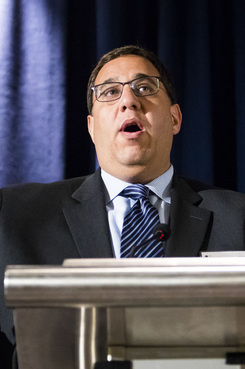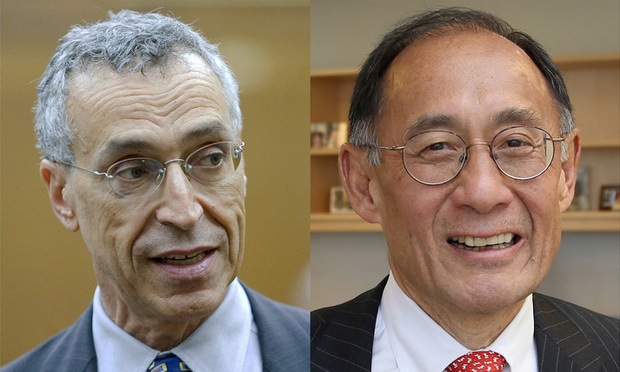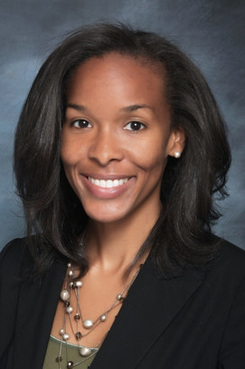High-Powered Legal Factions Gear Up for Harvard Admissions Trial
The legal showdown between nonprofit group Students for Fair Admissions Inc. and the president and fellows of Harvard College begins Monday, and it's teeming with prominent lawyers.
October 12, 2018 at 05:57 PM
6 minute read
 Radcliffe Quad at Harvard University campus in Cambridge, Massachusetts. (Photo: Jannis Tobias Werner/Shutterstock.com)
Radcliffe Quad at Harvard University campus in Cambridge, Massachusetts. (Photo: Jannis Tobias Werner/Shutterstock.com)
An affirmative action lawsuit brought by nonprofit group Students for Fair Admissions Inc. against the president and fellows of Harvard College is set for trial this Monday, and it's stacked with high-powered legal clout.
Judge Allison D. Burroughs of the U.S. District Court for the District of Massachusetts will officiate a rare glimpse into the methods of one the world's top universities before deciding whether Harvard's admissions process violates Title VI of the Civil Rights Act of 1964 by intentionally discriminating against Asian-American applicants, as alleged by Edward Blum, president of Students for Fair Admissions.
Blum's November 2014 complaint claimed that Harvard's “racial preference” for students “is so large that race becomes the defining feature of his or her application.”
But Harvard disagrees, claiming that race is part of an intricate web of factors considered when accepting or rejecting applications.
Harvard has responded to the suit on its website, saying, “We will continue to vigorously defend the right of Harvard College, and every other college and university in the nation, to seek the educational benefits that come from bringing together a diverse group of students.”
Click here to read the complaint:
 William S. Consovoy, partner with Consovoy McCarthy. Photo: Diego M. Radzinschi/ALM.
William S. Consovoy, partner with Consovoy McCarthy. Photo: Diego M. Radzinschi/ALM.Plaintiffs attorney William S. Consovoy has worked on the case since its inception with his partners at Consovoy McCarthy, a small litigation firm in Chicago. Once trial was in the cards, Cosovoy enlisted the help of a larger firm, peppered with old friends from his time clerking at the U.S. Supreme Court.
Consovoy, his colleague Patrick Strawbridge, and Chicago-based Bartlit Beck attorneys Adam K. Mortara and John M. Hughes once clerked for Justice Clarence Thomas. Consovoy McCarthy attorney Michael H. Park worked under Justice Samuel Alito, while Krista Perry clerked for Justice Anthony Kennedy. Park was nominated to the U.S. Court of Appeals for the Second Circuit on Oct. 10.
The plaintiff's team is also propped up by members of the Federalist Society, a network of conservative legal scholars.
Mortara will perform opening statements for the plaintiff, while William Lee of WilmerHale in Boston is expected to present Harvard's openings.
Alongside Lee will be veteran Supreme Court lawyer Seth Waxman of WilmerHale, a former solicitor general under President Bill Clinton.
 Seth Waxman and William F. Lee of WilmerHale. (Courtesy photos)
Seth Waxman and William F. Lee of WilmerHale. (Courtesy photos)Dozens of amicus briefs have been filed by interested parties on either side.
The U.S. Department of Justice has backed the plaintiff, claiming that “Harvard provides no meaningful criteria to cabin its use of race,” while prominent civil rights groups have risen up in Harvard's defense.
Click here to read the DOJ's amicus brief in support of Students for Fair Admissions
“We see this as a very important trial,” said Dennis Parker, director of the ACLU Racial Justice Program, one of the organizations backing Harvard.
In Parker's mind, Blum's case is “a means of furthering an attack on admissions policies that have been endorsed by the Supreme Court in a number of cases.”
In one such case in 1978, University of California v. Bakke, the Supreme Court decided that the pursuit of educational benefits of diversity was a compelling government interest that universities could pursue by considering race in admissions.
“What the plaintiffs seek is a challenge to the existing law and a challenge that would undercut efforts to strengthen educational opportunities for everyone by eliminating the consideration of race completely from admissions decisions,” Parker said.
Click here to read the ACLU's amicus brief in support of Harvard University
Groups supporting Harvard in this case are of the opinion that race and ethnicity, along with many other factors are important parts of creating a diverse student body.
Student amici from both sides will also present opening statements.
 Michaele Turnage Young, senior counsel to the NAACP Legal Defense and Educational Fund Inc. Courtesy photo.
Michaele Turnage Young, senior counsel to the NAACP Legal Defense and Educational Fund Inc. Courtesy photo.Michaele Turnage Young, senior counsel for the NAACP Legal Defense Fund Inc., represents 25 Harvard student and alumni organizations serving as amici curiae in the lawsuit, some of whom will testify at trial.
Her clients hope the court will uphold what they consider to be “settled law,” allowing colleges and universities to consider race as one of many factors in admissions.
“Unfortunately, we live in a society where educational opportunities in our pre-K through 12 schools are not equal,” Young said. “There are racial disparities in the opportunities to get an education in primary and secondary school. Because of that and also because of well-documented racial bias in standardized testing, applicants don't have equal opportunity to build a competitive college application.”
The way Young sees it, universities can't be “race blind” until educational inequities are a thing of the past.
“We just don't have a level playing field when it comes to applying for college,” Young said.
To prepare for trial, Harvard has hired statistical experts to analyze the effects of removing the consideration of race from its admissions process.
After opening statements, the plaintiff is expected to call Harvard's dean of admissions and financial aid, William R. Fitzsimmons, to the stand first.
According to Blum, Fitzsimmons and other officials have disregarded studies conducted by the college, which discovered evidence that Asian-Americans had less chance of being admitted, despite being some of the highest academic performers.
According to Young, if the plaintiffs get their way, that ”wouldn't do much” to increase the numbers of Asian students admitted to Harvard.
“Most of those seats would be taken by white applicants, not Asian-American applicants,” Young said. “Which is interesting, given that the plaintiff in this lawsuit is claiming that Asian-American applicants are being discriminated against.”
Emily Van Dyke of the Native American Alumni of Harvard University graduated in 2003, when “there was some diversity, but I would say not enough.”
According to Van Dyke, the idea of a racially blind admissions process is “just crazy.”
“If you grew up in a reservation, are you not allowed to say so?” Van Dyke said. “(An applicant's) journey to learning more about their heritage would likely be one of the stories they'd want to tell.”
Related stories:
DOJ Attacks Harvard's Race-Conscious Admissions Policy
Suits Against Harvard and NYU Law Reviews Claim Racial, Gender Preferences
This content has been archived. It is available through our partners, LexisNexis® and Bloomberg Law.
To view this content, please continue to their sites.
Not a Lexis Subscriber?
Subscribe Now
Not a Bloomberg Law Subscriber?
Subscribe Now
NOT FOR REPRINT
© 2025 ALM Global, LLC, All Rights Reserved. Request academic re-use from www.copyright.com. All other uses, submit a request to [email protected]. For more information visit Asset & Logo Licensing.
You Might Like
View All
Chicago Law Requiring Women, Minority Ownership Stake in Casinos Is Unconstitutional, New Suit Claims
5 minute read
Free Microsoft Browser Extension Is Costing Content Creators, Class Action Claims
3 minute read
Fired by Trump, EEOC's First Blind GC Lands at Nonprofit Targeting Abuses of Power
3 minute read
Indian Law Firm Cyril Amarchand Rolls Out AI Strategy, Adopts Suite of AI Tools
Trending Stories
- 1Public Notices/Calendars
- 2Wednesday Newspaper
- 3Decision of the Day: Qui Tam Relators Do Not Plausibly Claim Firm Avoided Tax Obligations Through Visa Applications, Circuit Finds
- 4Judicial Ethics Opinion 24-116
- 5Big Law Firms Sheppard Mullin, Morgan Lewis and Baker Botts Add Partners in Houston
Who Got The Work
J. Brugh Lower of Gibbons has entered an appearance for industrial equipment supplier Devco Corporation in a pending trademark infringement lawsuit. The suit, accusing the defendant of selling knock-off Graco products, was filed Dec. 18 in New Jersey District Court by Rivkin Radler on behalf of Graco Inc. and Graco Minnesota. The case, assigned to U.S. District Judge Zahid N. Quraishi, is 3:24-cv-11294, Graco Inc. et al v. Devco Corporation.
Who Got The Work
Rebecca Maller-Stein and Kent A. Yalowitz of Arnold & Porter Kaye Scholer have entered their appearances for Hanaco Venture Capital and its executives, Lior Prosor and David Frankel, in a pending securities lawsuit. The action, filed on Dec. 24 in New York Southern District Court by Zell, Aron & Co. on behalf of Goldeneye Advisors, accuses the defendants of negligently and fraudulently managing the plaintiff's $1 million investment. The case, assigned to U.S. District Judge Vernon S. Broderick, is 1:24-cv-09918, Goldeneye Advisors, LLC v. Hanaco Venture Capital, Ltd. et al.
Who Got The Work
Attorneys from A&O Shearman has stepped in as defense counsel for Toronto-Dominion Bank and other defendants in a pending securities class action. The suit, filed Dec. 11 in New York Southern District Court by Bleichmar Fonti & Auld, accuses the defendants of concealing the bank's 'pervasive' deficiencies in regards to its compliance with the Bank Secrecy Act and the quality of its anti-money laundering controls. The case, assigned to U.S. District Judge Arun Subramanian, is 1:24-cv-09445, Gonzalez v. The Toronto-Dominion Bank et al.
Who Got The Work
Crown Castle International, a Pennsylvania company providing shared communications infrastructure, has turned to Luke D. Wolf of Gordon Rees Scully Mansukhani to fend off a pending breach-of-contract lawsuit. The court action, filed Nov. 25 in Michigan Eastern District Court by Hooper Hathaway PC on behalf of The Town Residences LLC, accuses Crown Castle of failing to transfer approximately $30,000 in utility payments from T-Mobile in breach of a roof-top lease and assignment agreement. The case, assigned to U.S. District Judge Susan K. Declercq, is 2:24-cv-13131, The Town Residences LLC v. T-Mobile US, Inc. et al.
Who Got The Work
Wilfred P. Coronato and Daniel M. Schwartz of McCarter & English have stepped in as defense counsel to Electrolux Home Products Inc. in a pending product liability lawsuit. The court action, filed Nov. 26 in New York Eastern District Court by Poulos Lopiccolo PC and Nagel Rice LLP on behalf of David Stern, alleges that the defendant's refrigerators’ drawers and shelving repeatedly break and fall apart within months after purchase. The case, assigned to U.S. District Judge Joan M. Azrack, is 2:24-cv-08204, Stern v. Electrolux Home Products, Inc.
Featured Firms
Law Offices of Gary Martin Hays & Associates, P.C.
(470) 294-1674
Law Offices of Mark E. Salomone
(857) 444-6468
Smith & Hassler
(713) 739-1250








